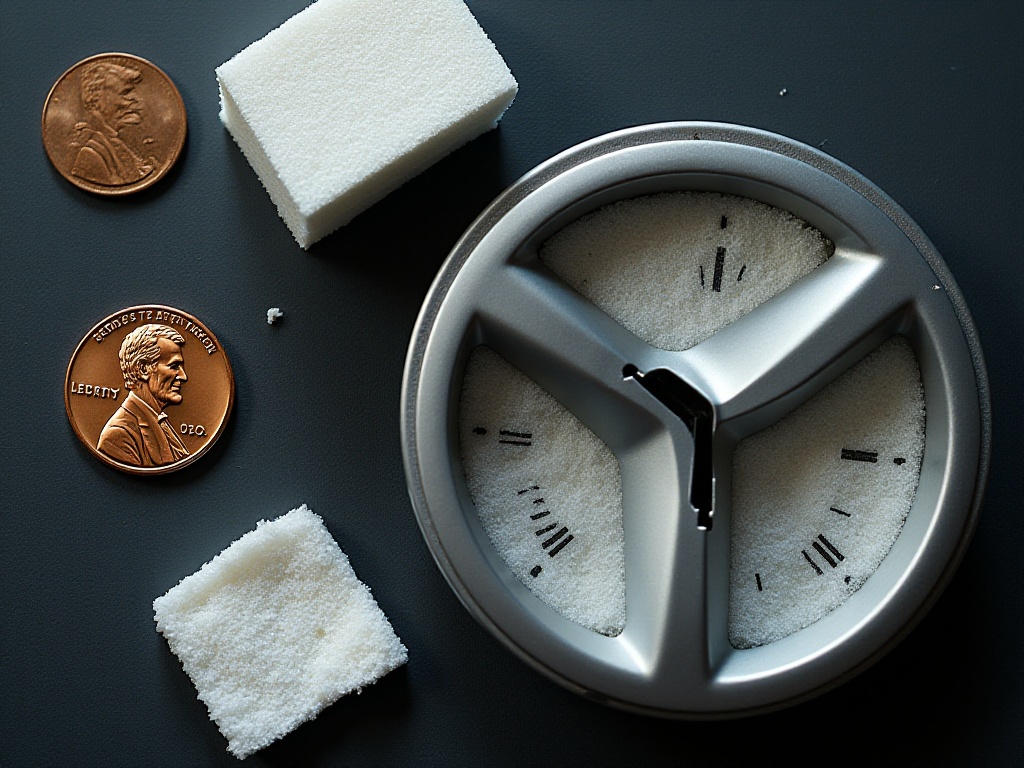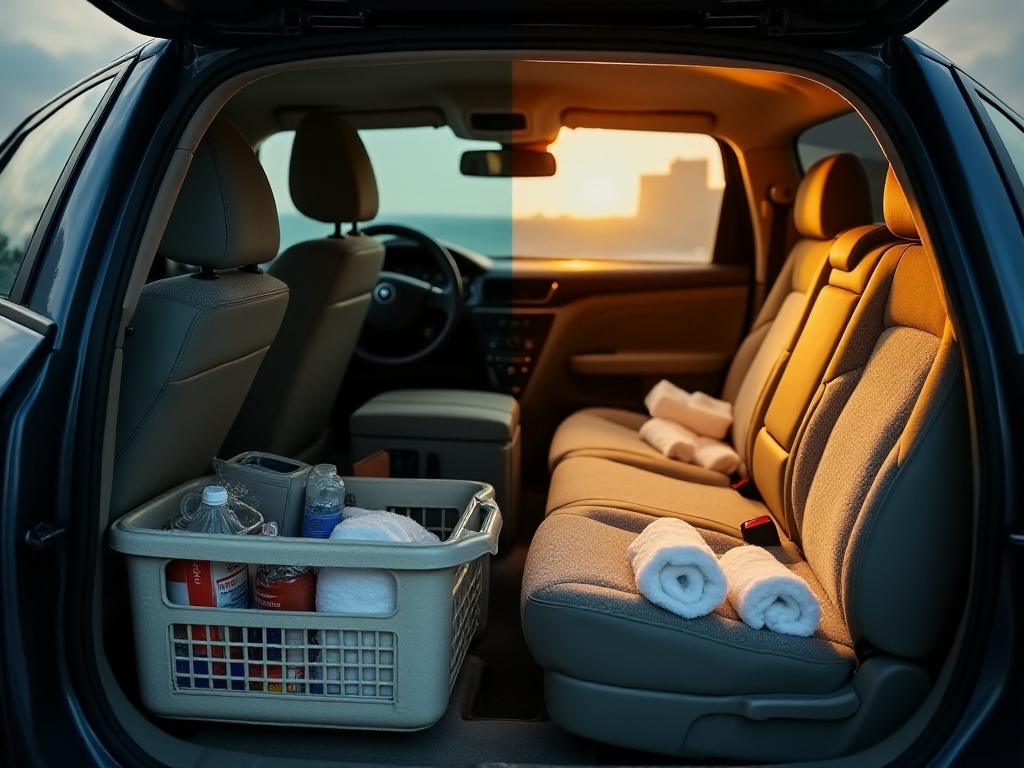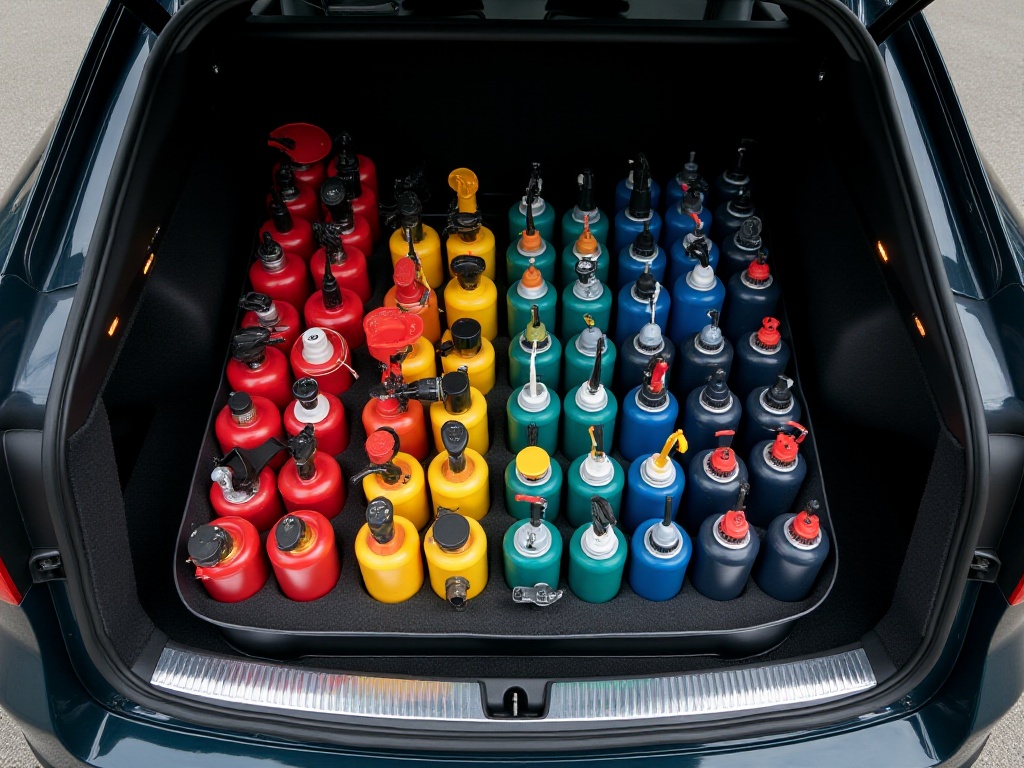Introduction
Hi everyone, I'm Xiang, a car enthusiast born after 1995. I've been driving for 7 years since getting my license at 18. Recently, while chatting with fellow car owners, I noticed that many young drivers my age face the same problem: they don't know how to maintain their cars after purchase.
While dealership maintenance services are convenient, the costs of one or two thousand dollars per visit really hurt us working-class folks! To be honest, some dealerships' service attitudes are quite poor, and it feels like they're just using technical jargon to get you to spend more money.
Actually, I think car maintenance isn't that mysterious. Many basic maintenance tasks can be done yourself, saving money while building a closer connection with your car. Today I'll share some practical tips I've learned over years of car ownership that will help your beloved car run an extra 100,000 miles!
Fluid Management
When it comes to car maintenance, checking and changing various fluids is most important. Engine oil is like the blood of your engine, right? I remember when I first bought my car, I would get nervous every time I saw the oil indicator light, worried that I'd ruin the engine by getting the oil change interval wrong.
So how often should you change your oil? I researched this question extensively. After checking many sources and asking experienced drivers, I concluded that: new cars generally should have oil changes every 5,000-7,500 miles. However, if your car is several years old, it's better to shorten this interval to 3,000-5,000 miles.
Why do this? Let me explain. New engines have brand new parts that work together well and produce relatively few metal wear particles. But as usage time increases, internal engine parts gradually wear, producing more metal shavings. These metal particles mixed in the oil are like sand in blood - they accelerate engine wear. So the older the car, the more frequent oil changes are needed.
Last year I encountered a typical case. A friend born in the 90s had been driving a 5-year-old Volkswagen. He thought the dealership's recommendation to change oil every 5,000 miles was excessive and just trying to make money, so he insisted on going 10,000 miles between changes. Then one day while driving, his engine suddenly started making loud knocking noises.
He quickly drove to a repair shop for inspection and found that the oil had completely degraded, with severely inadequate viscosity - the engine was nearly ruined. Just cleaning the engine cost him almost 2,000 yuan. Keep in mind that an oil change only costs 300-400 yuan, but if the engine is truly ruined, a new one would cost tens of thousands.
Besides engine oil, transmission fluid is also important. Many young car owners may not know that automatic transmission fluid needs regular changes too. I saw a post on a car repair forum about a female driver who never changed her transmission fluid - after 80,000 miles her transmission failed, with repair costs exceeding 10,000 yuan.
So I recommend considering transmission fluid changes at 40,000-60,000 miles. While this maintenance item is indeed expensive, around 700-800 yuan, it's nothing compared to replacing a transmission.
Coolant is especially important in winter. I remember an embarrassing situation last winter. The temperature was very low, below -10°C, and when I tried to start my car in the morning, the engine temperature wouldn't rise. Upon inspection, I found the coolant was low and nearly froze the radiator. Since then, I've made a habit of regularly checking coolant levels.
Tire Care
After discussing oil, let's talk about tires. Honestly, when I first started driving, I completely ignored tires. I thought they were so sturdy they didn't need regular checks. Until I had a blowout on the highway one night - that kind of experience is truly unforgettable.
According to transportation department statistics, tens of thousands of traffic accidents occur each year due to tire problems. A large portion of these are caused by insufficient tire pressure or severe tread wear. These statistics are scary, but we can completely avoid these problems with a little attention.
Let's start with tire pressure. Many people think they can just visually check if tires look inflated, but this is very inaccurate. Both over and under-inflation affect driving safety. I now carry an electronic tire pressure gauge and check pressure weekly. These only cost a few dozen yuan on Taobao but can be lifesaving.
Then there's tire wear. How do you know when tires need replacement? Here's a simple trick: take a one-yuan coin and insert it upside down into the tire tread. If you can see the "People's Bank of China" text on the coin's edge, it's time to replace the tires.
Also, many young drivers may not know that tires have an expiration date. Generally, from the manufacturing date, tires have a 4-5 year lifespan. Even if tread remains, tires should be replaced after this time as the rubber degrades and grip significantly decreases.
Tires also need regular rotation. I usually rotate tires every 20,000 miles. Front and rear tires wear differently, especially on front-wheel drive cars where front tires wear more severely. Regular rotation allows more even wear and longer tire life.
Another commonly overlooked issue is the spare tire. Many people might not check their spare tire for an entire year. But spare tires also age. I've seen people get a flat on the highway, only to find their spare tire was also flat - that scene was truly heartbreaking. So I recommend regularly checking spare tire condition to ensure it's ready when needed.
Braking System
Now let's discuss the brake system. This could be considered the most important safety component - you can't be careless about it. I remember when I first bought my car, one time driving home from work, the car in front suddenly braked hard. I quickly hit my brakes but found they felt very soft - I almost rear-ended them. That experience made me deeply understand the importance of brake system maintenance.
According to data from a chain auto repair shop, over 60% of car owners incurred extra repair costs in 2023 due to improper brake maintenance. Just replacing brake pads alone costs an average of 800-1,500 yuan each time. This isn't a huge amount, but if brake system problems cause an accident, the losses would be much greater.
How do you check brake pad wear? It's actually simple - you can see brake pad thickness through the wheel gaps. If the brake pads look thin, it's best to get them checked at a repair shop promptly. Don't wait until the brakes make sharp squealing noises to replace them - by then the brake discs might already be damaged.
Brake fluid is also important. It transmits braking force through hydraulic pressure - if the fluid degrades or is low, braking performance will be affected. It's recommended to change brake fluid every two years, costing around 200-300 yuan. This money is definitely worth spending, as the brake system is truly a matter of life safety.
On this topic, I want to especially emphasize the importance of good driving habits for the brake system. I've summarized several key points:
First, don't habitually rest your foot on the brake pedal. This habit not only accelerates brake pad wear but can mislead following vehicles into thinking you're braking, potentially causing misunderstandings.
Second, try to avoid sudden braking. Hard braking not only damages the car but is especially unsafe. Develop good habits of observing road conditions ahead and braking smoothly.
Finally, learn to use engine braking when going downhill. This means not coasting in neutral on descents, but staying in gear to use engine resistance to control speed. This reduces brake system load while improving safety.
Air Conditioning System
Air conditioning system maintenance is often overlooked by young drivers, but this system is quite important. It not only affects driving comfort but is closely related to safety. If the AC doesn't cool properly, summer driving can make people irritable and affect driving mood; if the defrost function is poor, winter visibility can be affected - these are all safety hazards.
I once ignored AC maintenance and ended up with completely ineffective cooling while driving in summer - the level of discomfort was extreme. When I got it repaired, I found the AC filter was too dirty and the refrigerant was low. Repairs cost nearly 1,000 yuan - I should have done regular maintenance instead.
AC filters should generally be replaced annually or every 20,000 miles. This part is actually quite cheap, just 100-200 yuan, but its function is very important. It filters out dust and pollen from the air and prevents odors from entering the car.
Refrigerant recharging is also important. If you notice the AC's cooling effect getting worse, it's likely low on refrigerant. Refrigerant recharging isn't expensive, usually 200-300 yuan. But note that this work should be done at proper repair shops as it requires professional equipment.
Another tip is to turn off the AC a few minutes before parking and just run the fan. This helps dry out the evaporator and prevents bacteria growth. I've maintained this habit for several years and it notably reduces AC odors.
Cleaning Tips
Finally, let's talk about cleaning maintenance. Many people might think car washing is simple, but there are actually many techniques involved. I've summarized several particularly useful cleaning tips that I've personally tried over the years.
First, let's discuss headlight cleaning. Over time, headlight covers gradually yellow, affecting illumination. Did you know toothpaste can be used to clean headlights? That's right, regular white toothpaste (not gel type) can restore yellowed headlights to clarity.
Here's how: First wet the headlight, then put some toothpaste on a cloth and gently wipe the headlight surface. The mild abrasives in toothpaste can gradually remove the oxidized layer. Finally, rinse clean with water. The effect is really good - I've tried it several times myself.
Interior cleaning is also important. Especially areas frequently touched like the steering wheel and gear shift will accumulate oils over time. I've found baby wipes work particularly well - they clean effectively without damaging leather.
Seat cleaning is also technical. Fabric seats are most vulnerable to stains, especially coffee or beverage marks. You can make a paste with baking soda and warm water, apply it to stains, let it dry, then vacuum it up. I've used this method several times with good results.
Glass cleaning requires technique too. Many people like using paper towels to clean glass, but this easily leaves tiny scratches. I now use microfiber towels with professional glass cleaner - much better results. This works especially well for the inside of the windshield, which often develops an oil film.
Another commonly overlooked area is the windshield wipers. If wiper blades aren't cleaned regularly, they can harden and deform, reducing wiping effectiveness. I now wipe the blades with alcohol pads during each car wash to extend their life.
Wheel cleaning is also important. Many people might think dirty wheels don't matter, but long-term dirt accumulation accelerates wheel oxidation and corrosion. I now use specialized wheel cleaner that effectively removes brake dust and road grime.
Conclusion
Well, those are the car maintenance tips I wanted to share with everyone. Actually, car maintenance isn't difficult - the key is being attentive. Just like we wash our face and brush our teeth daily, daily car maintenance should become a habit.
These maintenance tips might seem like a lot, but they're not really complicated. You can completely make a simple maintenance plan based on your schedule. For example, check tire pressure weekly, check oil monthly, clean glass after each refueling, etc.
Following these basic maintenance methods not only saves repair costs but helps your beloved car go further. Know that a well-maintained car can easily run an extra 100,000 miles with no problem.
Maintaining a car is like maintaining a relationship - it needs careful attention. If you truly care for it, it will definitely reward you well. I hope every car owner can have a happy relationship with their car and create more wonderful memories together.
By the way, do you have any unique car maintenance experiences? Feel free to share in the comments. Next time we'll discuss how to buy used cars - don't forget to follow me.







